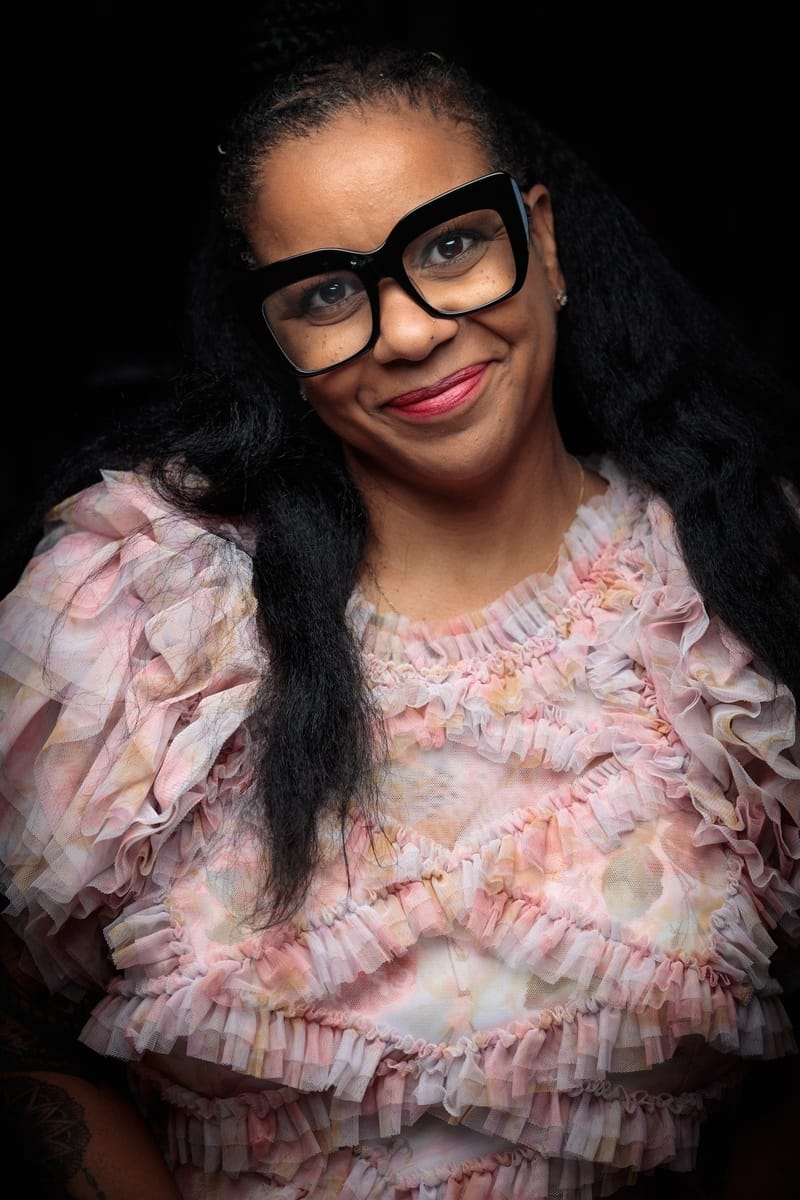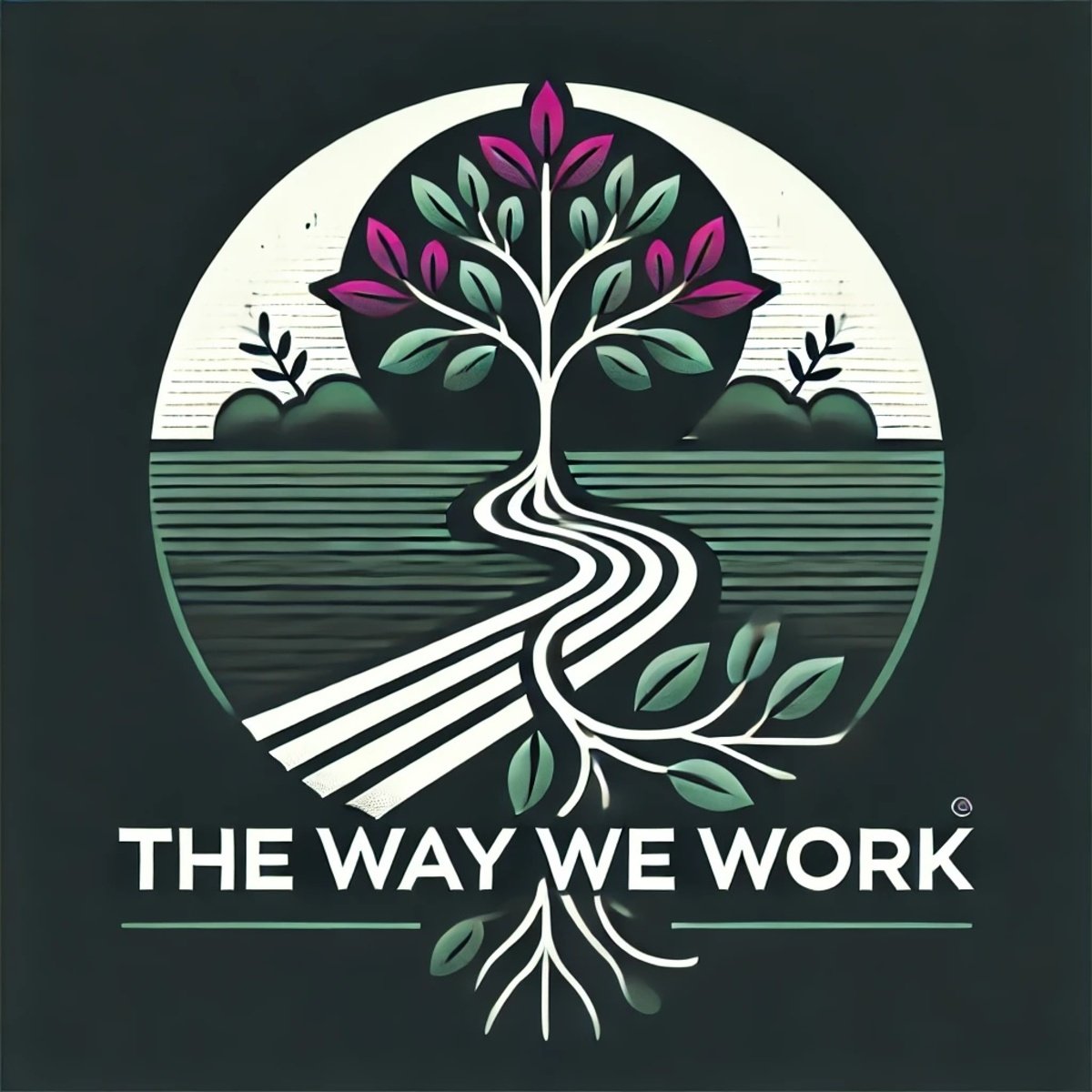
The Morning Show gif @giphy.com
Welcome to The Way We Work: Tales from The Office
Dear Readers (in my Peggy from The Gilded Age voice),
To recap: The prior editions were full of info, but to be honest, it was a lot of work and I wasn’t being as efficient with creativity and storytelling—two areas I think we need to see more of in the workplace. Our stories at work matter.
So, The Way We Work: Tales from The Office has been born.
These are fictionalized stories of actual events—either things I’ve experienced or stories others have shared—reimagined by me so you can get a peek behind the corporate curtain. Or, if you’re already behind it, maybe you’ll catch a glimpse of a part of the stage you haven’t seen before.
I hope you enjoy them as they marry the two gifts I have: impactful work and writing.
Gidget Ignores Red Flags
If she was being honest, Gidget felt the pricks of the odd interview process her entire time interviewing. She just wanted the job so bad, she ignored them. Later her best friend would say, “Man, it’s not enough we do this in dating. Why in the world would you do it for a job?”
And she would be right.
But the job was just… it was THE job. She would be leading marketing for a moderately notable brand that seemed to be about support, giving access to information to so many people, breaking up traditional go-to-market strategies and really being in a position to reach so many audiences. Her. She would be leading that.
So when the interview process started off strong—a really great recruiter who was thorough and kind—Gidget had to admit not one question she heard before, but each allowed her to demonstrate her background in such a unique, kind way that she even sent an immediate thank-you note after the interview.
“Rhona,” she wrote, “you were a gem, and I have never said that to any recruiter in my life.”
It was true. She hadn’t. She was used to talking to someone who felt like they were either reading generic questions off a paper (“Tell me about a time when…”) or seemed like they were flailing in a sea of ambiguity while acting as though they were guarding top-secret information.
“If you can’t answer why you are doing something, you are not doing it right,”
...is something she used to tell her past teams—at the museum, the e-commerce marketplace, and most recently the digital content platform that had changed owners so often she wasn’t even sure what she was supposed to do.
Hence: THE job.
If only Rhona had been the interviewer after that. She would have loved multiple Rhonas. What she got was four—wait, no, five—oh snap, no, it was six. SIX. Six other business leads from Product, People, Legal, Finance, Sales, and Accounting (“business partner,” they said?) all asking various questions that seemed in tangent to the role—or sometimes the same questions over and over again, just with different faces.
First red flag she missed?
A few had that I’m A Professional Interviewer Ask Me How attitude but then used questions she was sure her mom had been asked in the 90s. Nine-box, was it? Some of them hadn’t even read her résumé prior to the interviews—she could tell. She, too, had not studied for tests or quizzes in school before, so the smell of disruption or unpreparedness was palpable even through the computer screen.
“We’re getting such great feedback,” Rhona had told her.
If Gidget knew how to do one thing in interviews, it was read subtext. She felt like if Rhona had a voiceover, it would say something like:
“I’m so sorry everyone thinks they’re really good at interviewing and some of them are horrible at it. I have tried to tell them and they won’t listen to me.”
Red flag number two?
But she really wanted this job because it would be life-changing—her first lead position, a notable brand, her first time leading a team this size, reaching an audience of this scale. She knew her sh*t, mind you—she had been doing this in prior roles to an extent but without the money (ohhh, the money was really decent), the autonomy, and the recognition.
Then she had to wait for three weeks (or so?) even though Rhona kept her in the loop the whole time. That made it feel less like three weeks—but it was three weeks.
Red flag number three?
In the meantime, she was doing her homework: diving into the brand, making notes, asking herself questions—avoiding asking herself questions like Why would they have her meet six people—some of whom didn’t feel like stakeholders but like placeholders?
But this job!!
When she got the call to meet the CEO, she was elated. She had read a lot about him and admired his work. When Rhona told her it was actually going to be the COO and then the CEO, she paused. So did Rhona. They had a shared “say what now?” moment—unspoken, but clear—then proceeded to schedule.
The COO was someone who didn’t seem to know much about the brand really—which was odd (red flag number... which one again?)—but a lot about operations, which she rationalized. Yeah, I mean this makes sense—you’d care about operations and marketing... But then he proceeded to ask more about her experience working with one of her former bosses that he knew from some executive business club back in the day. Then he kept talking about his kids, and before she knew it, her time was up.
What the helly?
Then came the CEO interview—weeks later, because he was traveling or didn’t like to do meetings before 9 a.m. or after 6 p.m. or something like that. It slipped out of the COO’s mouth, which is how she knew.
The CEO interview...
He came across very pleasant, but also felt like her college professor who was frustrated that none of them cared as much about the 1929 Stock Market crash as he did—this was her economics professor—and really believed that if they immersed themselves in that world, they’d have the keys to the kingdom of business.
The CEO did all of the talking—well, like 80 percent of it—and she suddenly felt like she needed to choose her words carefully. He made very little eye contact while talking but then locked in when she did speak.
While she knew he had no marketing experience, she did know he had been a wunderkind in the executive world—getting promoted at every company and touted as a business genius. But he acted like he knew WAY more than she did and needed her to know it too.
Red flag again?
Or was she tripping?
She had asked about what support looked like and all that stuff that’s important to know about how to navigate a company—especially in a high-profile role like a marketing executive—and while in the thick of it, she thought she got good answers.
But when she was brushing her teeth that night, she realized it was just a lot of really good Harvard Business Reviewwords.
RED FLAG.
Leave it alone, Gidget, she told herself. You’re agile and you can work in most environments.
His voice got louder as they reached the wrap-up time, letting her know there was no way she was going past that 45-minute mark at all. He wrapped by asking her about a bunch of people she had worked with before—she imagined so he could show that he was connected.
Like “Hey I know these people and I might ask them about you.”
She didn’t mind. She was great at her job.

The Morning Show @giphy.com
Three more weeks went by and she cycled between optimism (asking herself questions about org design, what her first 90 days would be like, whether the salary bump could help pay for her mom’s meds and get her a bigger place, what events they needed to hit to make a splash—all of this like a stew cooking in her head) and grief (what made her think she could get a job like this, the ache of not proving herself to the mean-girl coworkers at the e-commerce site who passive-aggressively mocked her museum background, the frustration of not being taken seriously as a woman in business, especially a woman of color).
Rhona kept sending her warming notes—which kept her from completely spiraling or shutting the door on the job.
But then she got it.
And she danced.
She cried.
She fist-bumped herself for the first time in her life.
Her besties took her to dinner. Her mom, not really grasping the situation, gave warm congratulations. She dreamt about change management and building trust with her team while hitting her goals. She woke up in the middle of the night to write down ideas and went back to sleep as peacefully as someone going through perimenopause could.
She got the job.
And she refused to count the red flags.
We’ll be back soon with Part 2—because getting the job was just the beginning.
Are you an organization or brand that wants to fix work?
We help organizations get stronger by embedding equitable practices into their People Strategy which results in a stronger operational business model setting you up for a healthy business. Disengagement? Challenging hiring processes? People not professionally developing? Overwhelmed managers? We got you.
Through specially designed programs, audits, contracts, or fractional services, you don’t have to guess at making your workforce strong.
Wanna see your name here? Contact us about sponsorships and promotions.
Our target audience is everyone at work—from interns to CEOs. We fundamentally believe that conversations need to happen across levels for real change.
We’re just getting started, so join us.
Reply to this newsletter—we got you.

www.equityactivations.com


